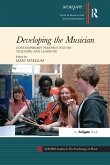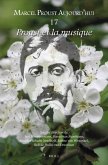Studying texts devoted to the Sonata and Septet of Vinteui, Nattiez demonstrates the fundamental role played by music in the evolution of the novel.
Does one need to know the rules of harmony to be considered a musician? Throughout A la recherche du temps perdu, and particularly ' Swann in Love', Proust displays a surprising sensitivity to the way music is heard, a sensitivity to which we owe some of the most beautiful writing on music. Through a study of the texts devoted to the Sonata and Septet of Vinteui, Jean-Jacques Nattiez demonstrates the fundamental role played by music in the evolution of the novel. He also shows how Debussy, Wagner and Beethoven provide the basis for a mystical quest whose goal is pure music and the literary absolute. Music as model for literature: this is the subject of Professor Nattiez's essay, which unravels the various musical themes running through Proust's work, and which thus constitutes a particularly clear and perceptive introduction to his writing.
Review quote:
"...pleasant reading for the specialist and non-specialist alike. It is agreeably written and smoothly translated...."
Pauline Newman-Gordon, French Review
Table of contents:
Preface to the English edition; Translator's note; 1. Introduction: beyond the 'little phrase'; 2. Parsifal as redemptive model for the redemptive work; 3. Music as redemptive model for literature; 4. From Vinteuil to Schopenhauer; 5. In conclusion: quest for the essence and denial of the origin; Appendix: passages from A la recherche translated in the text; Notes; References; Index.
Hinweis: Dieser Artikel kann nur an eine deutsche Lieferadresse ausgeliefert werden.
Does one need to know the rules of harmony to be considered a musician? Throughout A la recherche du temps perdu, and particularly ' Swann in Love', Proust displays a surprising sensitivity to the way music is heard, a sensitivity to which we owe some of the most beautiful writing on music. Through a study of the texts devoted to the Sonata and Septet of Vinteui, Jean-Jacques Nattiez demonstrates the fundamental role played by music in the evolution of the novel. He also shows how Debussy, Wagner and Beethoven provide the basis for a mystical quest whose goal is pure music and the literary absolute. Music as model for literature: this is the subject of Professor Nattiez's essay, which unravels the various musical themes running through Proust's work, and which thus constitutes a particularly clear and perceptive introduction to his writing.
Review quote:
"...pleasant reading for the specialist and non-specialist alike. It is agreeably written and smoothly translated...."
Pauline Newman-Gordon, French Review
Table of contents:
Preface to the English edition; Translator's note; 1. Introduction: beyond the 'little phrase'; 2. Parsifal as redemptive model for the redemptive work; 3. Music as redemptive model for literature; 4. From Vinteuil to Schopenhauer; 5. In conclusion: quest for the essence and denial of the origin; Appendix: passages from A la recherche translated in the text; Notes; References; Index.
Hinweis: Dieser Artikel kann nur an eine deutsche Lieferadresse ausgeliefert werden.









